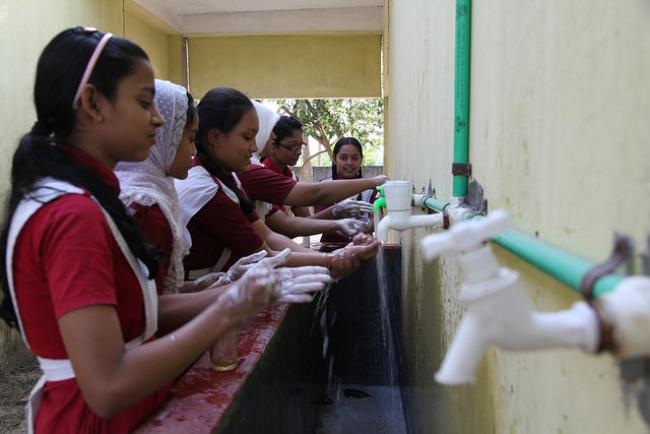Stronger advocacy is needed for better water, sanitation and hygiene facilities in schools, health centres, workplaces and prisons.
Published on: 19/10/2015

Access to water, sanitation and hygiene (WASH) facilities at home is simply not enough to achieve complete behavioural change and sustainable impact. The fact is that most people spend more than 50% of their time away from their home due to work, etc. Research shows the poorer you are, the less time you actually spend at home therefore making institutional WASH even more important.
The availability of WASH facilities at schools for both students and teachers is of critical importance, especially for girls at menstruating age. As important is the availability of WASH facilities at hospitals, health centres and clinics, as this is key to preventing infections and other diseases. In addition, the availability of WASH facilities ranging from the workplace to prisons is fundamental so that people are able to survive in a healthy and safe environment; a requisite for sustainable economic development.
IRC is currently working on this topic and approaching it from the following different angles, namely through advocacy, strengthening alliances and undertaking a number of events to highlight this issue.
There is a need for stronger advocacy for institutional WASH which includes schools, health care facilities but also other settings such as the workplace, prisons. Advocacy is needed both at the international and national level. IRC is collaborating with like-minded organisations to strengthen WASH in extra household settings. A SuSanA group on institutional WASH will be set up and led by IRC to further engage other organisations to focus on this area.
In December 2014, Simavi and IRC initiated a campaign to include WASH targets for institutional settings as part of the post-2015 development agenda. IRC is further strengthening its ties with Sanitation Water for All (SWA) and the End Water Poverty global civil society coalition to engage them in the campaign. At the same time, Simavi, which is a member of SDG task team of End Water Poverty, is looking for other opportunities to actively campaign for inclusion of a global indicator on hygiene and indicators especially for WASH in health centres.
For more information see the list of key websites and publications, and the IRC/Simavi fact sheet in the Resources below.
Upcoming activities for the remainder of this year are the following:
Look forward to the further dialogue with you in this important area around WASH.
At IRC we have strong opinions and we value honest and frank discussion, so you won't be surprised to hear that not all the opinions on this site represent our official policy.